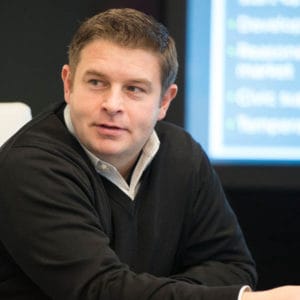Ryan Doyle, 2017 Health Leader
 Title: Vice President & General Manager – oneC1TY Nashville
Title: Vice President & General Manager – oneC1TY Nashville
Organization: Cambridge Holdings, Inc.
Location: Nashville, TN
Ryan brings nearly two decades of healthcare planning and strategy expertise, including administrative leadership with hospitals and health professionals in both community and academic settings. Most recently, Ryan focused on campus and facility strategies to accomplish market share and capital planning objectives for health systems throughout the country. His current work targets opportunities to connect his knowledge of urban planning, health care services, university-based research and technology within mixed use community developments. Ryan holds a Master of Health Administration from Indiana University and a Masters in Real Estate Development from Auburn University. He is a founding member of the Urban Land Institute’s Healthcare and Life Sciences Council; Chair of the ULI Nashville Building Healthy Places Action Council; a member of the Young American Leaders Program at the Harvard Business School and a Past President of the Nashville Civic Design Center.
Why are you motivated to participate in the Health Leaders Network? How will your participation enhance your current and future work?
My career has been diverse in considering intersections between health and the built environment. Early in my role as an ambulatory care strategist, we were positioning facilities close to where people lived in retail settings, connecting them to schools and sports and walk-ability. This was the earliest form in my career of changing the brand from healthcare to health. In my time working for a publicly traded REIT, my initial role was to evaluate and examine if the care models being used to provide patient care in hospital buildings or resident services in senior living facilities were sustainable in creating “inside out” value for our real estate investments. Eventually that examination transitioned into how to program and design new models of care that could be fostered from forward thinking design. This thinking, coupled with the way technology is changing consumer preferences is leading to new residential models that help seniors age in place and the creation of multi-generational neighborhoods where kids learn from elders and entrepreneurs from mentors in collaborative indoor and outdoor spaces. My current work is focused on the impact mixed-use districts can make on community health, with the belief that “node” development throughout regions are a key to connecting commerce, job creation, life-long learning and equitable lifestyle improvements for all. Participating in this program will expand my expertise and continue my career progression from healthcare strategist to health (in the built environment) leader.